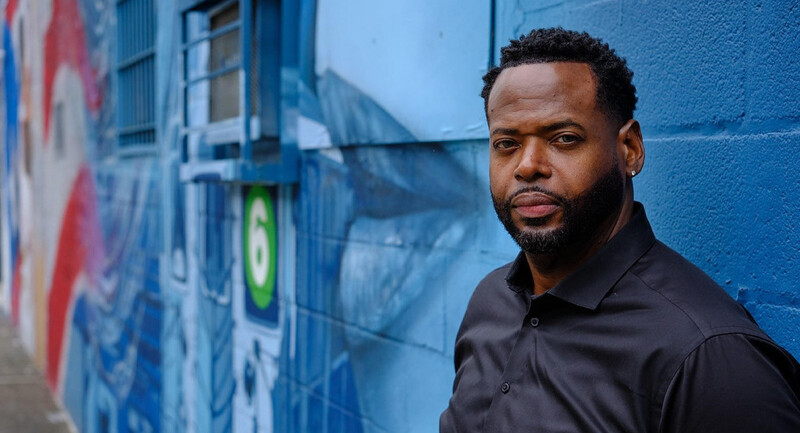At this month’s Empower conference, I’ll be talking about some of the challenges principals face in their first year. One of the biggest is the adage, “A principal’s job is to support teachers.” That sounds like an easy and rewarding task—right up until someone grumbles, I don’t feel supported. It typically comes when the principal has not reacted as the teacher had hoped or expected. It’s disheartening to hear, because on top of everything else going on, hearing your people don’t feel supported is like a kick in the gut.
But it’s a mistake for a principal to imply to teachers, “I will support you, no matter what.” Because support is a complicated word, is it not? And in the principal-teacher relationship, it’s easy to lose the true meaning of support. Support doesn’t mean blind loyalty, defending things that are wrong, or refusing to acknowledge mistakes, missteps, or negligence. It does not mean “shield” or “corroborate” or “implicate.” And it certainly doesn’t mean taking the blame for someone else’s errors.
In fact, it’s quite the opposite.
Being supportive means being the clear-eyed leader, the one who has broad perspective and can see all sides of every story. Support means offering a framework to help teachers be their best. It means challenging the way things have always been done, and offering new approaches, and being a relentless advocate for students.
It helps to ourselves what support means, in any particular scenario. When a teacher asks for support, explicitly or implicitly, they may be saying:
- Please listen to me.
- Defend me.
- Tell me I’m right.
- Don’t make me lose face.
- I don’t understand; can you give me more information?
- I will not waver in my stance.
All of these things may be legitimate, or they may be misguided—or a mixture of both. If the teacher just needs to be heard, that’s easy: We can listen. But if the teacher is asking for a blind and unwavering defense, principals need to dig beneath the layers to reveal the core issue—usually, what help or harm is happening with a student—and why—and figure out the ramifications of our response.
Let me share two common examples.
Not long ago, I spoke teacher about excessive absences—specifically, her tendency to miss every Friday. I could almost see furious speech bubbles above her head shouting, “You’re not supporting me!”
But here are the points I made:
- Your colleagues need you. They recognize your pattern to miss Fridays, and it is causing anger and divisiveness on your team. It creates more work for them when you’re out, and the resentment is beginning to simmer. It’s a culture killer.
- Your students need you. You are the best person for them; a substitute simply can’t replicate what you do.
- Your students’ parents need you. They send their child to school every day assuming you will be there. When you miss 20% of teaching opportunities, they grow disheartened and negative about their child’s school experience.
- I need you. It is hugely comforting when I know students have their teacher there. Having a sub in your room so often makes the work we are trying to do, as a school community, very difficult.
- Of course we all get sick and need to take time to get well. Is something else going on that requires you to miss Fridays? Is there anything I can do to help?
Later I heard the teacher had, in fact, told her team, “She doesn’t support me.” I refused to acknowledge this criticism, because I knew I was supporting her. By pointing out her pattern, I’d helped her see a weakness and work on fixing it. Better yet, I had supported her colleagues, students, and our families—and I knew their experience was better because of what I’d done.
Here’s another example.
A teacher was struggling with the behavior of a particular student in her classroom. He seemed to unwittingly infuriate her, and she’d taken to sending him to the office multiple times a day for minor infractions. As every principal knows, there is actually very little we can do when a child is removed from the classroom for those little things—sure, we can doll out punitive consequences, but they rarely change the behavior and never improve the relationship between the student and the teacher.
I met with the teacher and asked some hard questions.
- Is there a way to motivate this child to make better choices?
- Can we consider antecedents to his behavior and set up ways to avoid or divert triggers?
- What reward system might work? What interests or skills does he have on which we can capitalize?
- What happens to the trust and understanding between the two of you when you remove him from your classroom?
- How might peers be an asset to you and the student?
- How can you communicate in a productive, symbiotic way with his parents?
As expected, she complained to colleagues about a lack of support. It stung—how could it not?—but in my heart, I knew the opposite was true. I was empowering her to be the decision-maker, to collaborate with the student and his parents, to see and celebrate his success. I was supporting her by pointing out the fractures in her relationship and approach with this student. And again, most importantly, I was supporting the child by sticking up for him.
We all want to be seen as supportive principals; of course we do! We want our teachers and students to feel they’ve got our backing. But supportive doesn’t imply agreement or collaboration. Just as when we support teachers by celebrating their efforts, backing up good choices, and observing sound practices, so too do we support them when they misstep and need an alternate perspective. And, yet again, it’s worth noting that the primary purpose of a principal’s work is, actually, to support students.





